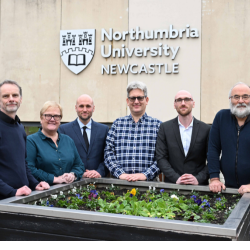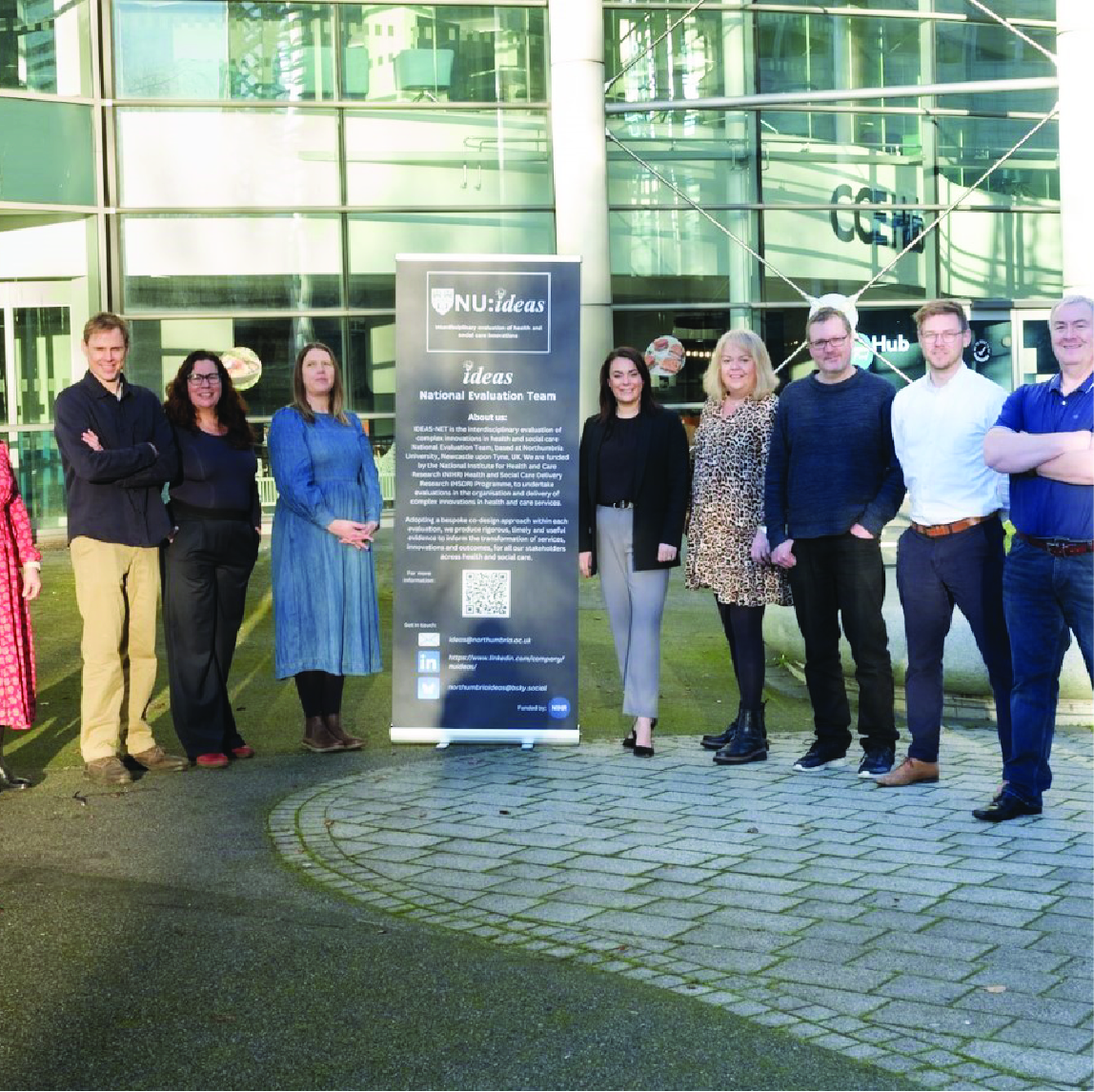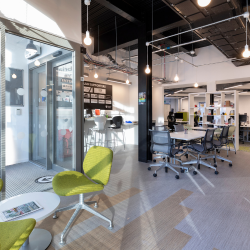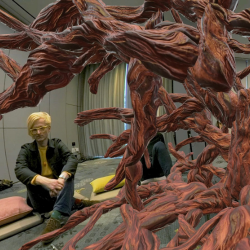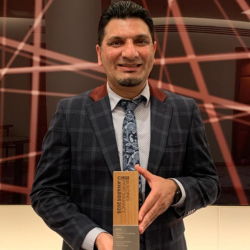-
Study
-
Quick Links
- Course Search
- Unlock Your Potential
- Still time to Apply
- Higher and Degree Apprenticeships
- Continuing Professional Development
- Still time to apply
-
Undergraduate
- Course Search
- Application Guides
- UCAS Exhibitions
- Foundation Years
- Fees and Funding
- School & College Outreach
- Information for Parents
-
Postgraduate
- Course Search
- Application Guide
- Postgraduate Research Degrees
- Flexible Learning
- Fees and Funding
- Change Direction
- Register your Interest
-
Student Life
- Students' Union
- The Hub - Student Blog
- Accommodation
- Northumbria Sport
- Support for Students
-
Experience Northumbria
- Open Days & Events
- Virtual Tours
- Campus Tours
- Life in Newcastle
-
-
International
International
Northumbria’s global footprint touches every continent across the world, through our global partnerships across 17 institutions in 10 countries, to our 277,000 strong alumni community and 150 recruitment partners – we prepare our students for the challenges of tomorrow. Discover more about how to join Northumbria’s global family or our partnerships.
View our Global Footprint-
Quick Links
- Course Search
- Undergraduate Study
- Postgraduate Study
- Information for Parents
- London Campus
- Northumbria Pathway
- Sign up for Information
-
International Students
- Information for Students
- International Events
- Application Guide
- Entry Requirements and Education Country Agents
- Global Offices
- English Requirements
- English Language Centre
- International student support
-
International Fees and Funding
- International Undergraduate Fees
- International Undergraduate Funding
- International Masters Fees
- International Masters Funding
- International Postgraduate Research Fees
- International Postgraduate Research Funding
-
International Partners
- Agent and Representative Network
- Global Partnerships
- Global Community
-
International Mobility
- Information for Northumbria Students
- Information for Incoming Exchange Students
-
-
Business
Business
The world is changing faster than ever before. The future is there to be won by organisations who find ways to turn today's possibilities into tomorrows competitive edge. In a connected world, collaboration can be the key to success.
More on our Business Services -
Research
Research
Northumbria is a research-rich, business-focused, professional university with a global reputation for academic quality. We conduct ground-breaking research that is responsive to the science & technology, health & well being, economic and social and arts & cultural needs for the communities
Discover more about our Research -
About Us
-
About Northumbria
- Our Strategy
- Our Staff
- Place and Partnerships
- Leadership & Governance
- Academic Departments
- University Services
- History of Northumbria
- Contact us
- Online Shop
-
-
Alumni
Alumni
Northumbria University is renowned for the calibre of its business-ready graduates. Our alumni network has over 246,000 graduates based in 178 countries worldwide in a range of sectors, our alumni are making a real impact on the world.
Our Alumni - Work For Us
What will I learn on this module?
This module critically explores the conceptual and practical tools for analysing and evaluating linear business practices and models from a circular economy perspective and how the growing interest in sustainable production philosophies and techniques together with responsible consumption support the application of circularity. Various platforms (e.g. UNEP) will inform the curriculum, and formative and summative assessments in which the students will engage with. Taking inspiration from real-world business practices from round the globe and contemporary theories will be used throughout the module to inform critical appreciation of the current body of knowledge and develop your decision making and management skills. You will have opportunities to collaborate with similarly minded peers, academics and practitioners on team-based projects that concern both domestic and international organisations working in commercial, social enterprise and public sectors.
The module will expand across the following broad topics:
Economic growth and consumption: the global middle class
Linear and circular economic models
Responsible marketing and consumer behaviour
Green manufacturing
Recycling business models
Sustainable supply chains
Life cycle analysis
Technologies for circular economy
Resource optimisation
The module will also feature a Design Sprint workshop focused on the development of students’ design thinking as a contemporary management tool.
How will I learn on this module?
You will learn through a teaching model that combines access to industry-leading academic and practitioner knowledge, online support and engagement with your module tutor. This learning model is designed to enable you to rapidly develop new skills and knowledge and apply them to real world business and management challenges.
As such a mixture of lectures and seminars sessions will be delivered and supported by on-line learning materials and activities. Lectures will be used to introduce the key topics such as circularly, green manufacturing, responsible marketing and consumption, using a research led approach. The lectures will be followed by seminar activities using case studies and discussion of real world scenarios in which you will apply principles of circular economy, sustainable technologies and resource optimisation. Thus, you will very much use ‘learn by doing’ approach in this module. You will have opportunities to engage in discussions with your peers as well as your tutor.
An initial workshop will introduce you to the module, assessment and core topics. Subsequent to this you will be guided through a range of subject specific topics delivered over the period of the module. Key messages from these sessions will also be available by online learning materials including video/podcast to support your learning outside of the classroom.
In order to develop your capacity and confidence as an effective learner, you will also engage in directed learning. This will be supported by tutor-guided activities reflected in a learning plan, including prompted reading, activities to undertake and questions to address. However, you will also extend to advanced independent study which entails reading beyond the learning materials/reading list provided and reflecting on its potential relevance for your own development.
The virtual learning environment will be used to encourage individual and group contributions to debate on key topics and issues. Materials and discussion group work will be available on the e-learning portal to support and engage you. To support and embed the learning, provide the opportunity for reflection, and encourage effective communication, you will engage in discussion forums via the University’s e-Learning platform. This will include posing and answering topic specific questions posed by the tutor and peer group and providing peer group formative feedback. You will also be encouraged to use email and discussion board tools to clarify issues.
How will I be supported academically on this module?
A range of approaches are adopted to accelerate your learning in this module.
During the first week of this module, you will receive information about the module and Teaching & Learning Plan. The teaching and learning plan (TLP) set out:
Learning outcomes and overall module and programme aims
Teaching, learning and assessment strategy
Teaching schedule
Directed reading references (text and journals) and core texts for the module
References to data sources and details of seminar/workshop activities
Further supporting your learning journey, the first session of this module will discuss the rational and learning objectives of this module and how it contributes to your overall programme goals. The formative and summative assessment strategy will be outlined as well a refresher on key academic skills, expectations of seminar or workshop activities and resources critical to your success as a learner on this module. Usually, this session will also be available as a video/podcast for further reinforcement.
During this module, your module tutor, a specialist in business management and strategy, will provide academic support including:
Delivering lectures on contemporary topics of sustainable production and responsible consumption towards a circular economic model.
Delivering seminars and workshops
Providing guidance in relation to the assessment
Development of key resources including seminar activities, made available through the electronic learning platform Blackboard.
Provide constructive feedback in summative and formative assessments
E-Reading Lists
The module will also have an e-reading list which directs learners to specific reading for each session. This includes direct access to repositories, journal articles and other academic sources. You will also be provided with access to a significant set academic research sources via the Northumbria University library portal.
What will I be expected to read on this module?
All modules at Northumbria include a range of reading materials that students are expected to engage with. The reading list for this module can be found at: http://readinglists.northumbria.ac.uk
(Reading List service online guide for academic staff this containing contact details for the Reading List team – http://library.northumbria.ac.uk/readinglists)
What will I be expected to achieve?
Knowledge & Understanding:
Evaluate the theoretical foundations and principles of the circular economy paradigm [MLO1]
Critically assess a company’s value chain from a circular viewpoint [MLO2]
Intellectual / Professional skills & abilities:
Draw practitioner-oriented implications and recommendations for transitioning from traditional to sustainable production and consumption business and social models [MLO3]
How will I be assessed?
Students in this module are assessed formatively and summatively. Formative assessment takes place in-class while students work individually or in learning sets on tutor-led tasks. Students will receive feedback by their tutor in class.
The module is summatively assessed:
Assessment A (100%), individual, consists of two parts:
Part 1: Theoretical debate on circularity, 2000 words (60%) [MLO1]
Part 2: Create a Transformation Journal for an organisation, 1500 words (40%) [MLO 2, MLO3]
Pre-requisite(s)
None
Co-requisite(s)
None
Module abstract
Developed economies in conjunction with developing economies have signed up to the global transition towards circular economic models and social attitudes. In a circular, as opposed to a linear, economy there is a beneficial (rather than harmful) relationship between ecological and economic health. In the European Union and United Kingdom the goal is for each country’s economy to be fully circular by 2050. Other countries around the world are also making this transition, with some economies leading the way (see China, Japan), and others following suit (see South Africa, Thailand). What they all have in common is that they are sources of both demanding challenges but also opportunities for international businesses. In this module you will study sustainable production models and responsible consumer behaviour and marketing, supply chains and concepts of recycling, application of technologies and optimisation models towards the reduction of carbon footprint both at individual (micro) and organisational (macro) levels.
Course info
Credits 20
Level of Study Postgraduate
Mode of Study 1 year Full Time
Department Newcastle Business School
Location City Campus, Northumbria University
City Newcastle
Start September 2025
All information is accurate at the time of sharing.
Full time Courses are primarily delivered via on-campus face to face learning but could include elements of online learning. Most courses run as planned and as promoted on our website and via our marketing materials, but if there are any substantial changes (as determined by the Competition and Markets Authority) to a course or there is the potential that course may be withdrawn, we will notify all affected applicants as soon as possible with advice and guidance regarding their options. It is also important to be aware that optional modules listed on course pages may be subject to change depending on uptake numbers each year.
Contact time is subject to increase or decrease in line with possible restrictions imposed by the government or the University in the interest of maintaining the health and safety and wellbeing of students, staff, and visitors if this is deemed necessary in future.
Useful Links
Find out about our distinctive approach at
www.northumbria.ac.uk/exp
Admissions Terms and Conditions
northumbria.ac.uk/terms
Fees and Funding
northumbria.ac.uk/fees
Admissions Policy
northumbria.ac.uk/adpolicy
Admissions Complaints Policy
northumbria.ac.uk/complaints

